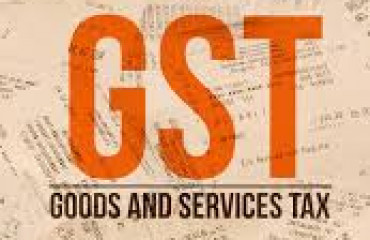
GST on residential property: The goods and services tax (GST) is in attention these days as to whether a salaried individual should pay GST on home rent. According to tax experts, until 17th July 2022, GST was applicable on the rent of a commercial property but from 18th July 2022, GST shall be charged if such residence is rented or leased by a GST-registered person. As recommended at the 47th GST Council meeting, the tenant should pay 18 per cent GST on a reverse charge basis (RCM). However, they can claim this value as a deduction while they pay tax on sales in GST returns.
GST on residential property: The goods and services tax (GST) is in attention these days as to whether a salaried individual should pay GST on home rent. According to tax experts, until 17th July 2022, GST was applicable on the rent of a commercial property but from 18th July 2022, GST shall be charged if such residence is rented or leased by a GST-registered person. As recommended at the 47th GST Council meeting, the tenant should pay 18 per cent GST on a reverse charge basis (RCM). However, they can claim this value as a deduction while they pay tax on sales in GST returns.
On what rule says in regard to GST on rent of residential property, Mahesh Jaising, Partner, Leader – Indirect Tax at Deloitte India said, "Renting of residential dwellings up to 17th July 2022 was exempt regardless of the status of the tenant i.e. whether the service provider or service recipient is registered or unregistered. This meant that renting of property for residential purposes was exempt for all. However, w.e.f. 18th July 2022, a tenant who is registered will become liable to GST on renting for residential purposes under the reverse charge mechanism."
Mahesh Jaising went on to add that there is no tax that is required to be discharge by the landlord whether the tenant is registered or unregistered. The only change that has been brought about is that a tenant who is registered will no longer be able to claim the benefit of exemption from GST on residential dwellings. Tax will need to be discharged by such tenants under RCM.
Echoing with Deloitte India expert, Archit Gupta, Founder and CEO at Clear said, "If any common salaried person has taken a residential house or flat on rent or lease, they do not have to pay GST. However, a GST-registered person who carries out business or profession must incur 18 per cent GST on such rent paid to the owner. Such persons can claim the input tax credit on the GST paid towards rent or lease on residential property."
As per the update, 'Persons' include individuals as well as corporate entities. GST registration is needed when any person carries on business or profession and makes an annual turnover more than the threshold limit defined under the GST law.
"The limit varies according to the nature of supply and state or UT where the principal place of supply is located. If the person supplies services alone, ₹20 lakh per financial year is the limit. The limit is ₹40 lakh for a supplier of only goods. However, if registration is obtained from northeastern or special category states, the limit is lowered to ₹10 lakh," said Archit Gupta of Clear adding, "If you are registered as a composition taxable person, you cannot claim the input tax credit on rental expenses but might still have to pay GST on rent on a reverse charge basis."
Speaking on this GST rule change, Mahesh Jaising said, "The change will impact corporate houses and taxpayers who have taken residential units on rent for their employees. GST will now be required to be paid by such registered taxpayers under reverse charge and can impact on the P&L, as the department can dispute the eligibility of credit, treating the same as used for personal consumption. This credit eligibility should be examined carefully by industry."
